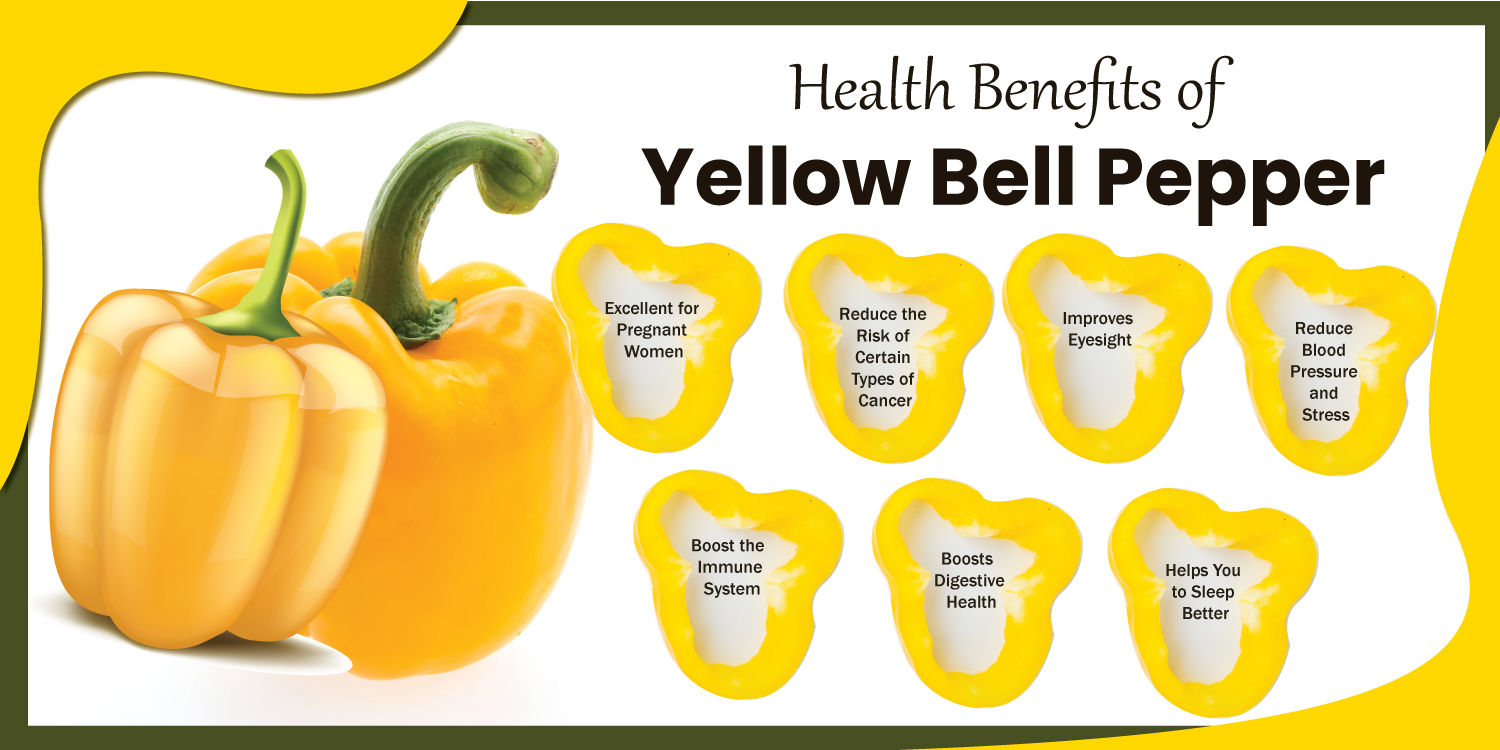What are Bell Peppers?
Bell peppers are colourful fruits which are often used as vegetables with no spiciness. They come in different colours like green, red, yellow, and orange. They become popular due to their mild taste and versatility. That's why, around 73% of American households buy them. And now China leads in the production of bell peppers and growing millions of tons annually.
Why do bell pepper colour differences?
Bell peppers come in different colours because various types of bell peppers are available. Green bell peppers are usually unripe red peppers. Yellow and orange peppers are fully mature, not just different stages of red peppers.
Difference among Green, Yellow, Orange & Red Bell Peppers
All of them belong to the same species, but do bell peppers taste different? The difference is merely in their ripeness. In terms of taste, Red, orange, and Yellow bells are similar. Green bell peppers tend to taste more grassy and occasionally bitter.
In other words, the colour is simply an indicator of how ripe the pepper is. Red peppers are fully ripe, followed by yellow and orange. Green peppers are picked when they are still unripe, hence the bitter taste.
Because they require more time to grow and are more in demand due to their sweeter flavours, red, yellow, and orange bell peppers are all more expensive than green ones.
Yellow Bell Pepper Nutrients
You know that bell peppers come in different colours, but did you know that each colour has different nutrients?
Yellow bell peppers are a powerhouse of vitamins C and B6. Vitamin C is a strong antioxidant that helps fight free radicals and is vital for collagen production. Vitamin B6 is essential for energy production and keeping your immune system strong.
Yellow bell pepper is also a great source of nutrients, including folic acid, Biotin, and potassium. So if you're looking for a nutrient-rich snack that will give you a boost of energy, reach for a handful of yellow bell pepper.
Which Color of Bell Pepper is More Beneficial?
A bell pepper's colour and level of maturity depend on the length of time it spends on the plant. Red peppers spend the most time on the vine, making them the healthiest and sweetest. The difference between green and red bell peppers is roughly twice as high in vitamin C and fully mature. Orange and yellow are average-ripped, while green is the least mature.
Health Benefits of Yellow Bell Peppers
Let's explore the many advantages of eating yellow bell peppers for your health.
1. Excellent for Pregnant Women
Bell peppers contain healthy nutrients, including folic acid, Biotin, and potassium. Folic acid is crucial for expectant mothers because it guards against neural tube abnormalities in the developing fetus. So bell peppers are a good choice for pregnant women or anyone who wants to stay healthy and look their best.
Further, Biotin is essential for healthy hair, skin, and nails, and potassium is vital for heart health and controlling blood pressure.
2. May Help to Reduce the Risk of Certain Types of Cancer
Did you know that yellow bell pepper may help to reduce the risk of certain types of cancer? It's true.
That's because peppers are a good source of antioxidants, which are thought to help protect cells from damage. And since cancer is caused by cells that grow out of control, antioxidants may help to reduce the risk of developing cancer.
Plus, bell peppers are a good source of vitamin C, which is known to help boost the immune system. So next time you're reaching for a pepper, go for the yellow one—you'll be doing your body a favour.
3. Helps You to Sleep Better
Having trouble sleeping, perhaps bell peppers can assist you. Tryptophan is found in abundance in bell peppers, whether they are green, yellow, or red. Melatonin, a hormone that promotes sleep, is produced with the aid of tryptophan. So the next time you have trouble sleeping at night, some peppers, please.
4. Improves Eyesight
If you want lifelong healthy Eyesight, add yellow bell peppers to your diet. Vitamin A, C, and abundant enzymes in yellow bell peppers decrease the likelihood of vision impairment. They also guard against oxidative damage to the eye's light-sensitive inner wall of the human retina.
5. Reduce Blood Pressure and Stress
Yellow pepper is excellent for maintaining healthy arteries. With more powerful antioxidants than even citrus fruits, bell peppers are an excellent source of vitamin C, enhancing heart function and decreasing blood pressure.
Further, bell pepper differences include an anticoagulant that may help prevent the blood clots that cause heart attacks and regulate blood pressure.
6. Boost the Immune System
Not only does it have a delicious flavour, but yellow bell pepper is also packed with nutrients that are good for your immunity. For example, it contains carotenoids and antioxidants that can help protect the body from disease.
Yellow bell pepper is also a good source of vitamin C. A one-cup serving of this pepper provides almost three-quarters of the daily recommended intake for vitamin C.
What's so great about vitamin C? Well, it's not only essential for keeping the immune system functioning correctly, but it's also vital for collagen production and natural skin protection. So next time you reach for a dash of bell pepper, go for the yellow one.
7. Boosts Digestive Health
Do you know that yellow bell pepper is a good source of fibre? Fibre is crucial for keeping the digestive system in good shape and can help if you’re wondering how to control sugar level effectively. Plus, a healthy weight can be achieved and maintained with the help of fibre.
So why not add a few slices of yellow bell pepper to your next salad? Not only will you get some much-needed fibre, but you'll also be enjoying this fantastic vegetable's delicious taste and nutritional benefits.

How to Add Yellow Bell Peppers to Your Diet?
Bell peppers are relatively easy to incorporate into your diet. You can slice them up and dip them in hummus, eat them as an on-the-go snack, or add them to a simple salad.
You may want to remove them any way you use them if you use a large number of peppers. Though they are not toxic, they are bitter and may ruin your dish.
Conclusion
So let's recap, Here are our seven reasons why you should add this superfood to your diet:
They are rich in antioxidants
They are rich in Vitamin-c
They are excellent for your eyes
They are fibre-rich and easy to digest
They are anti-inflammatory
They are natural stress busters
They are super easy to add to your daily diet
So are you surprised to know so many health benefits Of Yellow Bell Pepper? We bet you are. But these are just a few. The list of benefits is endless. Hope you found the information helpful.
FAQ’s
1. Which is better: green vs red bell peppers?
Red peppers are sweeter and have higher nutritional value, including Vitamin C and beta-carotene. On the other hand, green peppers are less sweet and more bitter but cost less.
2. Are red bell peppers spicy?
No, red bell peppers are not spicy, they have a mild and sweet flavour.
3. Do all bell peppers taste the same?
No, green bell peppers have a more bitter taste. While yellow, orange, and red bell peppers are sweeter due to their increased ripeness.
4. Are bell peppers good for you?
Major bell pepper benefits include:
They reduce the chances of cancer
Bell peppers reduce the risk of heart diseases
They shield you against chronic conditions
They manage blood sugar levels
Bell peppers improve skin appearance
5. What risk factors do yellow bell peppers have?
Bell pepper nutrition use daily does not present any significant risks. However, in certain individuals, it may result in allergies. The cross-relationship between pollen and veggies is the cause of this.



 Contact Us
Contact Us






 Hospitals
Hospitals
 Doctors
Doctors
 Diagnostic
Diagnostic
 Pharmacy
Pharmacy
 Health Tips
Health Tips
 Blog
Blog


















Comments